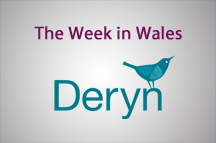 All politicians in Wales having been looking forward to the end of the summer term, especially following both Local and General Elections in the last three months.
All politicians in Wales having been looking forward to the end of the summer term, especially following both Local and General Elections in the last three months.
Brexit and infrastructure spending have dominated the political agenda here in Wales over the last few weeks. Addressing AMs in the Senedd during the last week of term, First Minister Carwyn Jones pledged to work across the Assembly and with the other devolved administrations to defend the devolution settlement. The EU Withdrawal Bill and the DUP deal has meant further common cause with Nicola Sturgeon, and we are likely to see them working together even more in the future to challenge Theresa May’s government.
Both governments have signalled their refusal to grant legislative consent for a Bill which they argue could mean devolved powers repatriated from Brussels are held in London. They simply don’t trust the UK Government when they say they will then pass on all these legislative powers. And why should they, at a time when they have also launched a formal complaint against the way agreements on devolved funding have been thrown out the window following the DUP deal. In a joint letter to the UK Treasury, the First Ministers claim that under Barnett formula rules, Wales should get an extra £1.67bn, and Scotland an extra £2.9bn.

This week UK Government Transport Minister Chris Grayling revealed that plans to electrify the Great Western Railway line between Cardiff and Swansea have been scrapped. Instead, Mr Grayling said that a new fleet of trains would be on the line from the autumn, with 130 extra seats per train. The Economy Secretary Ken Skates urged the UK Government to clarify how the change could affect the development of the planned South Wales Metro system, and will also be seeking compensation to cover costs of delays to the franchise process.
Secretary of State for Wales, Alun Cairns, has defended the Government’s decision, and tried to soften the blow by bringing forward the plans to end the tolls on the Severn Bridges.
Plans for a major shake-up of council elections and structures have been unveiled by Local Government Cabinet Secretary Mark Drakeford. Proposals include extending the vote to 16 and 17 year olds, electronic voting and proportional representation. The Welsh Government will mandate collaborative work along regional lines, but with a complex set of structures for different types of service.
The UK’s first Development Bank has been given the official go-ahead by the Welsh Government and will be up and running by October 2017. Announced by Cabinet Secretary for Economy & Infrastructure Ken Skates, the Development Bank of Wales will seek to generate more than a billion pounds of investment to the Welsh economy over the next five years and, as the first of its kind in the UK, will provide Wales with a competitive business edge over the rest of the UK.
Looking forward to the next few months, we could see a potential Welsh Government cabinet reshuffle. We would expect around three new members of the ministerial team from the 2016 intake of new Assembly Members, though with fewer leaving cabinet, as the First Minister did not appoint the full complement possible after the last election.














